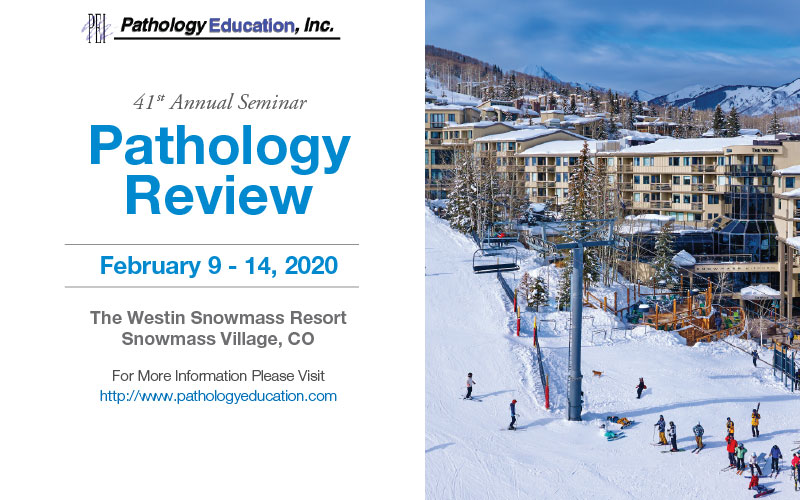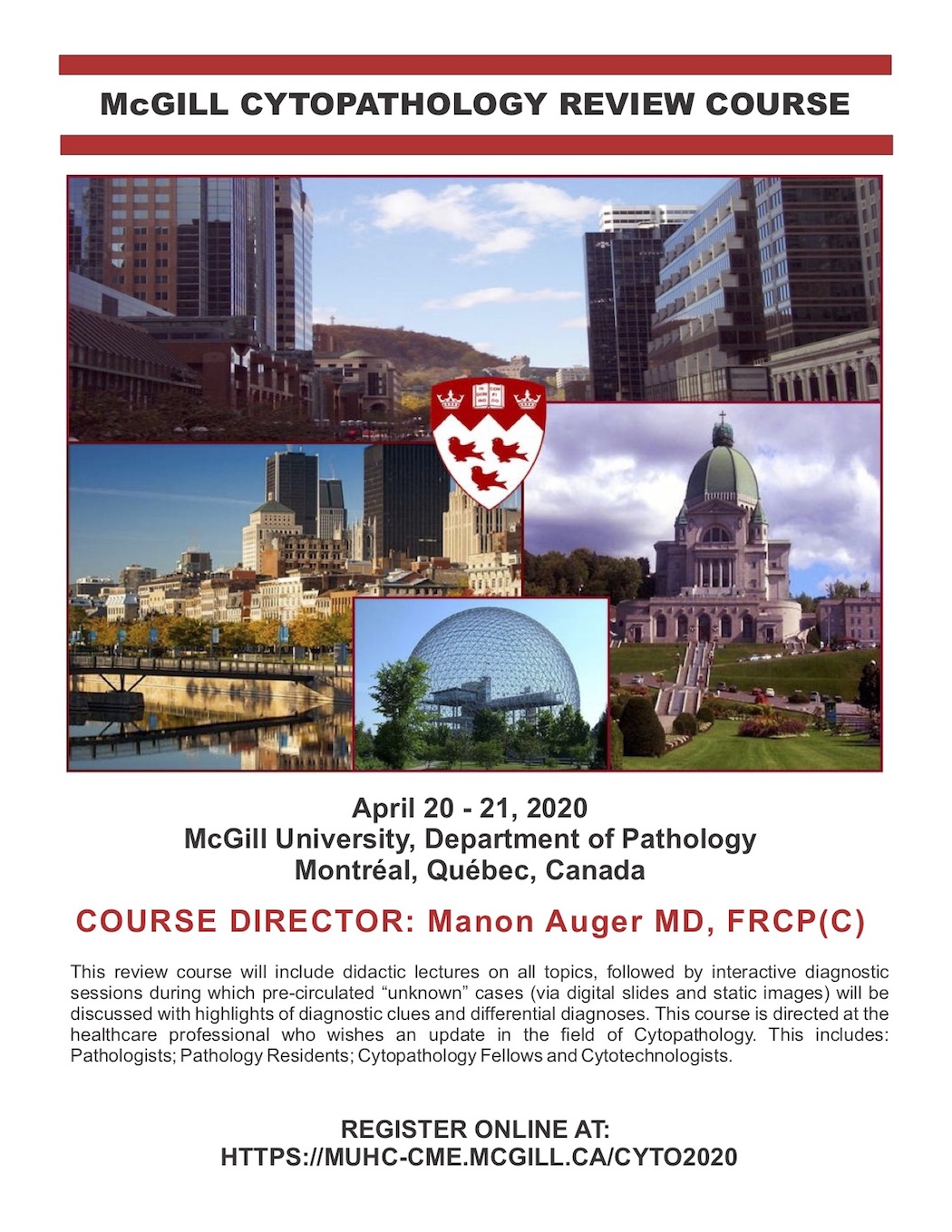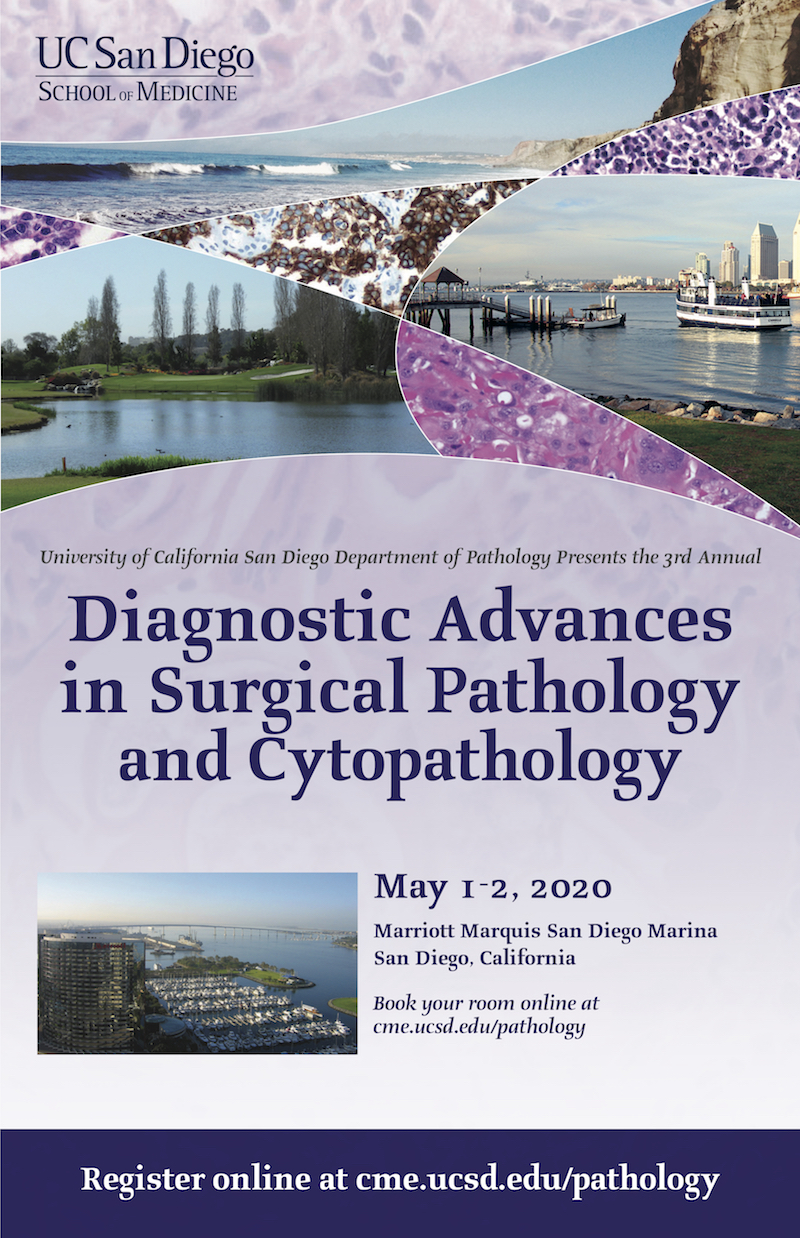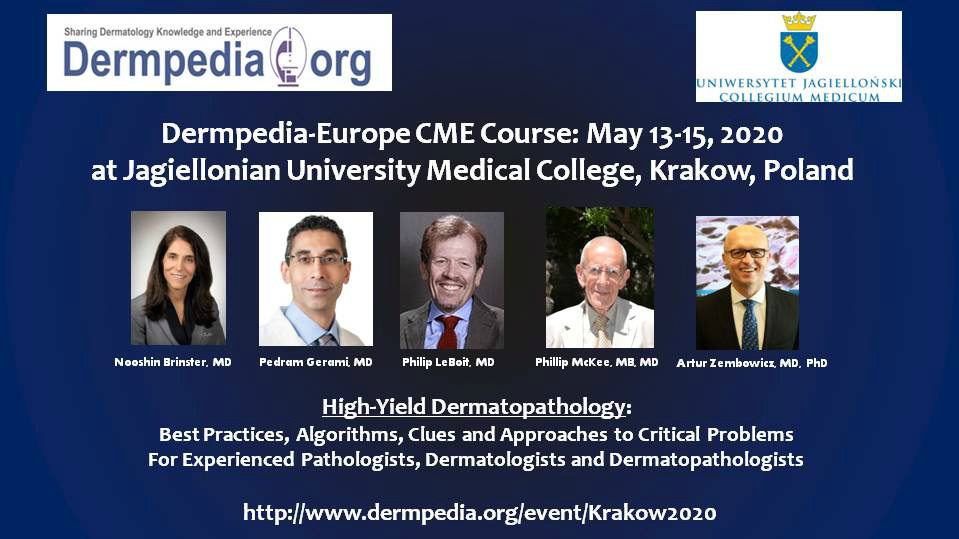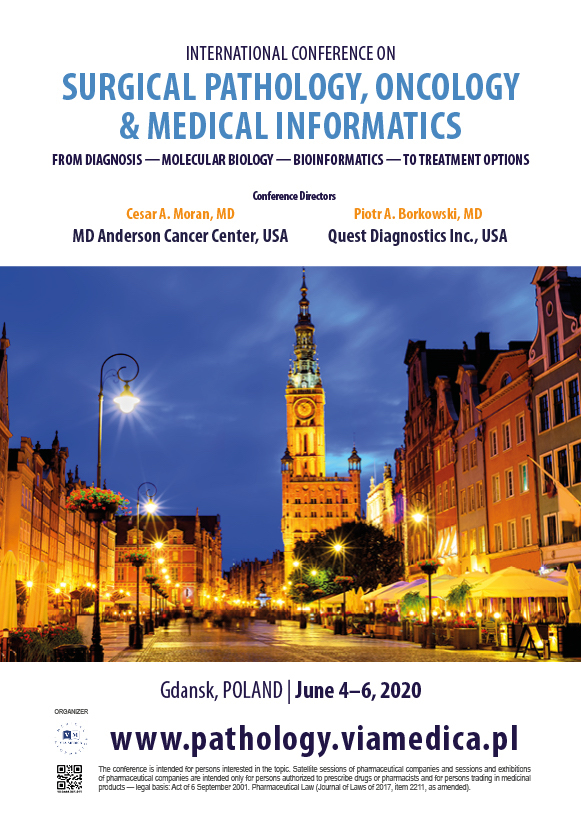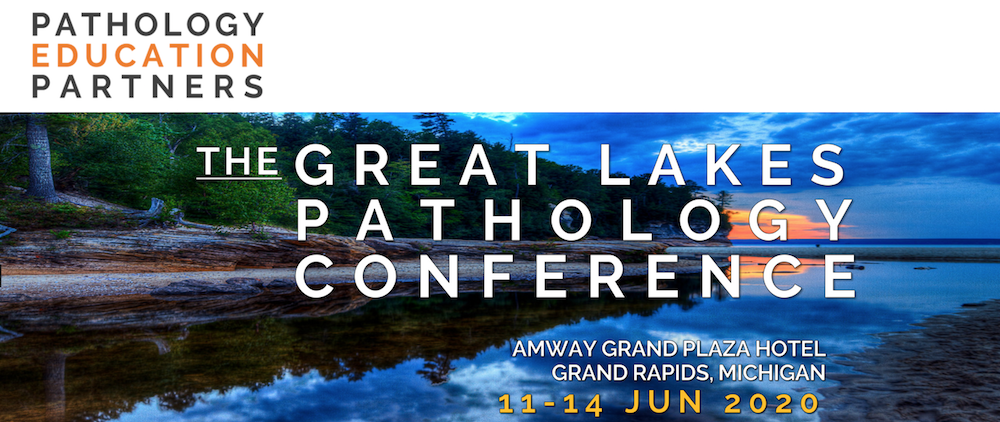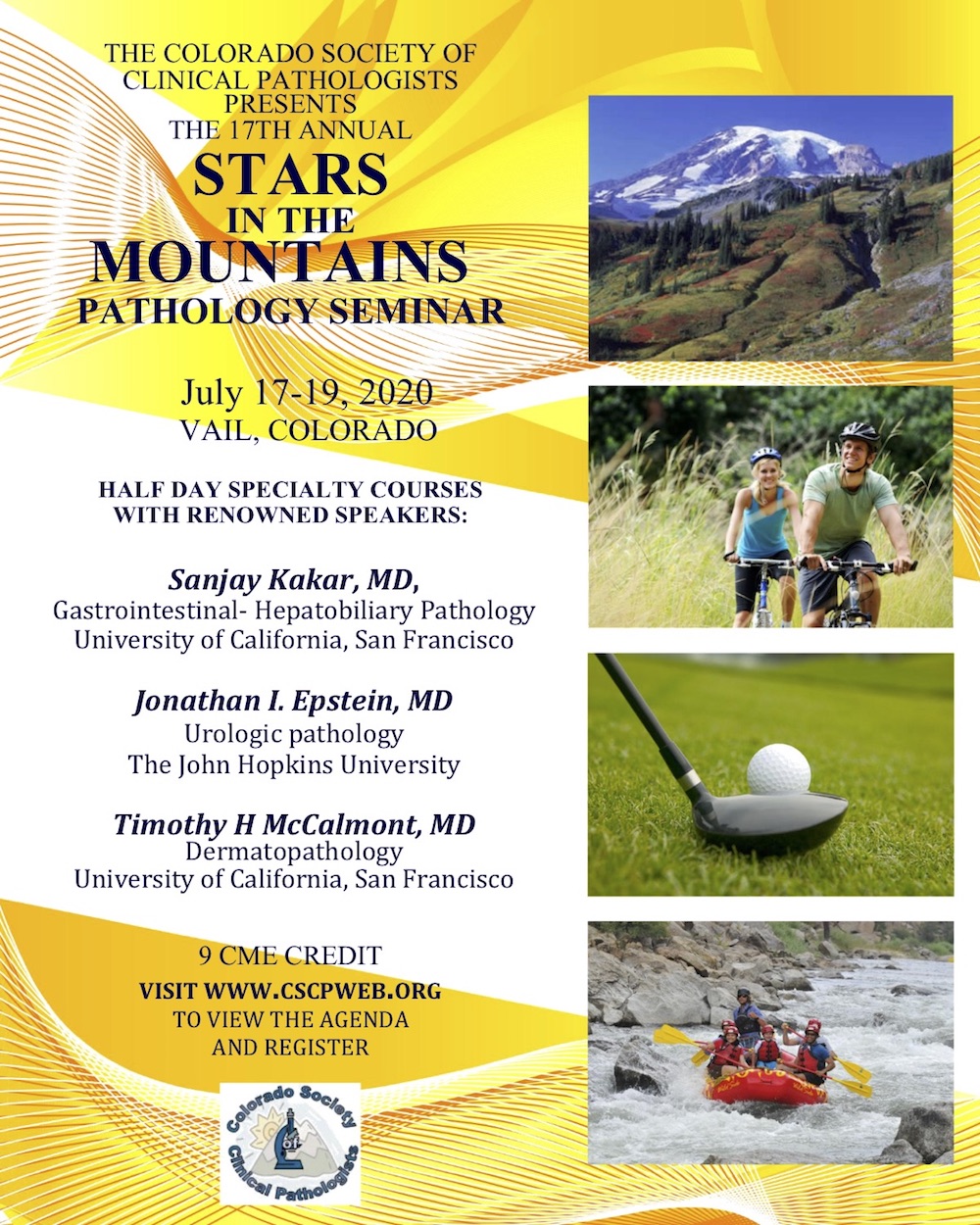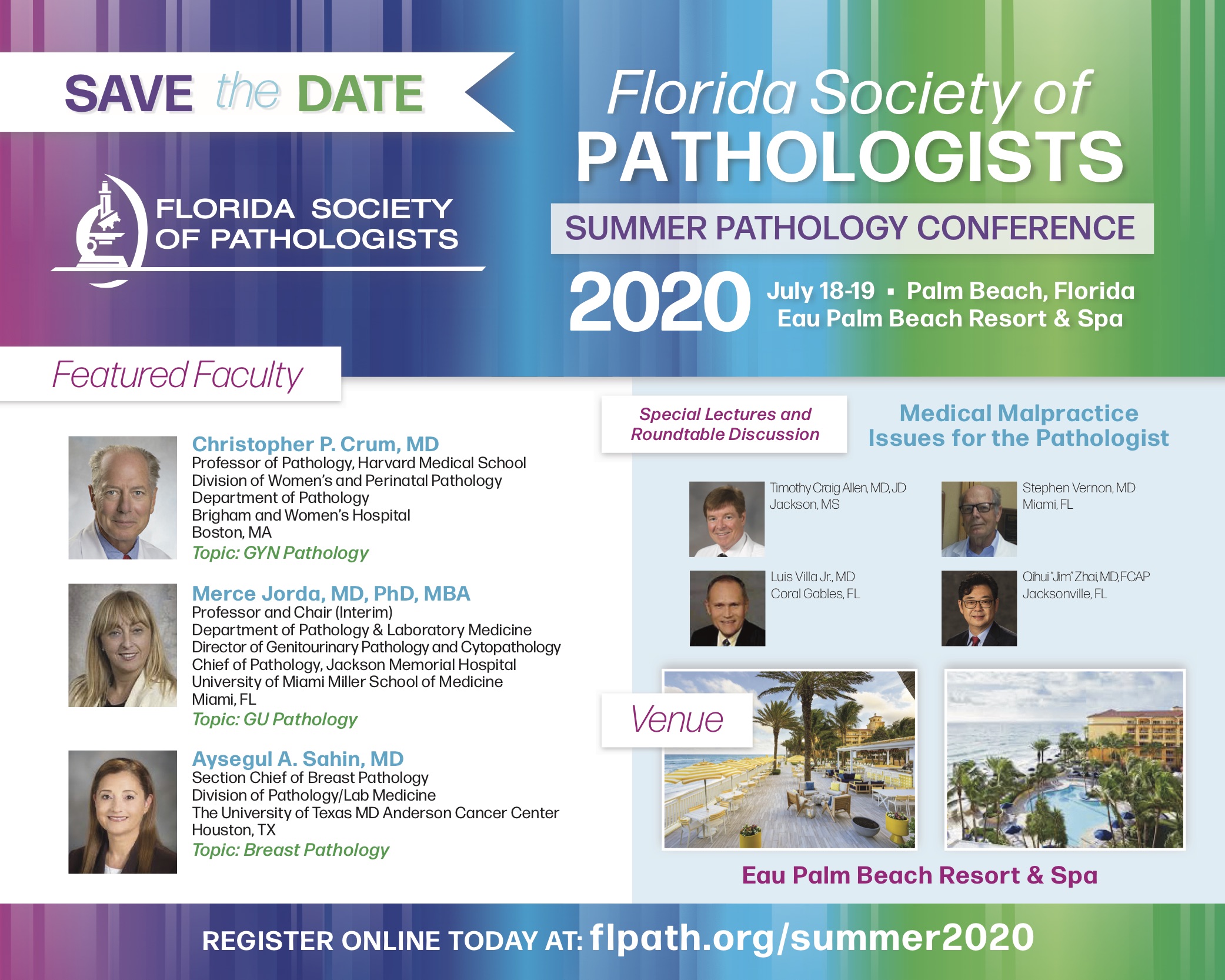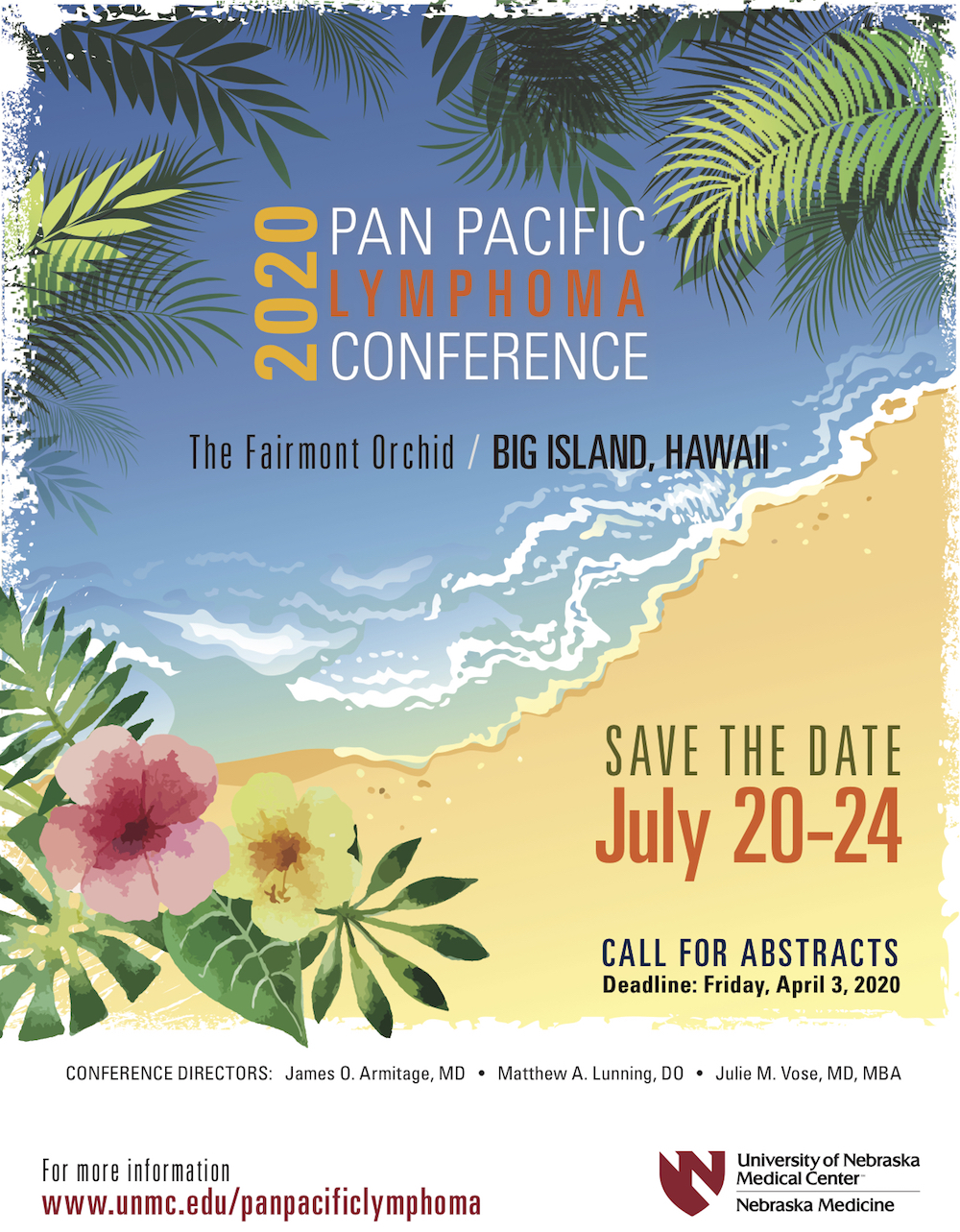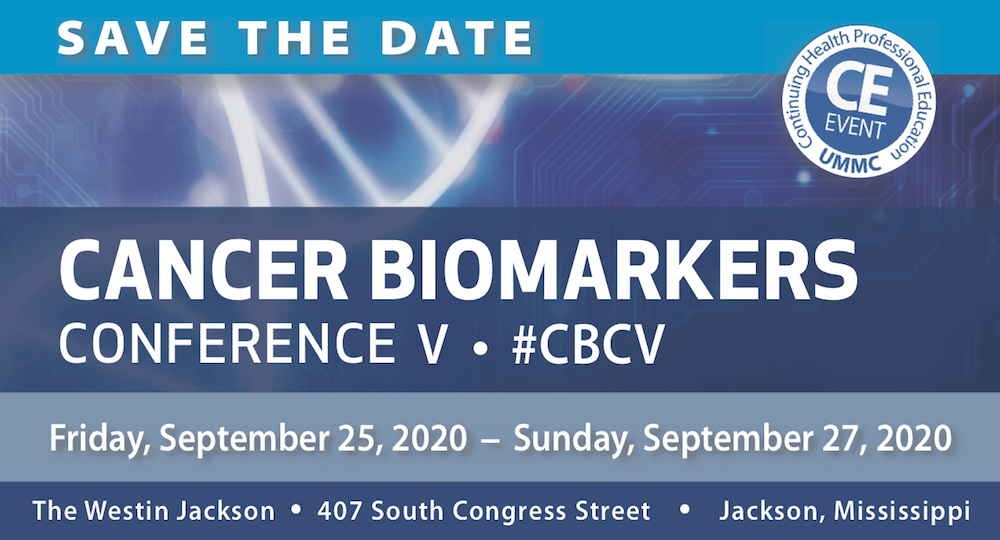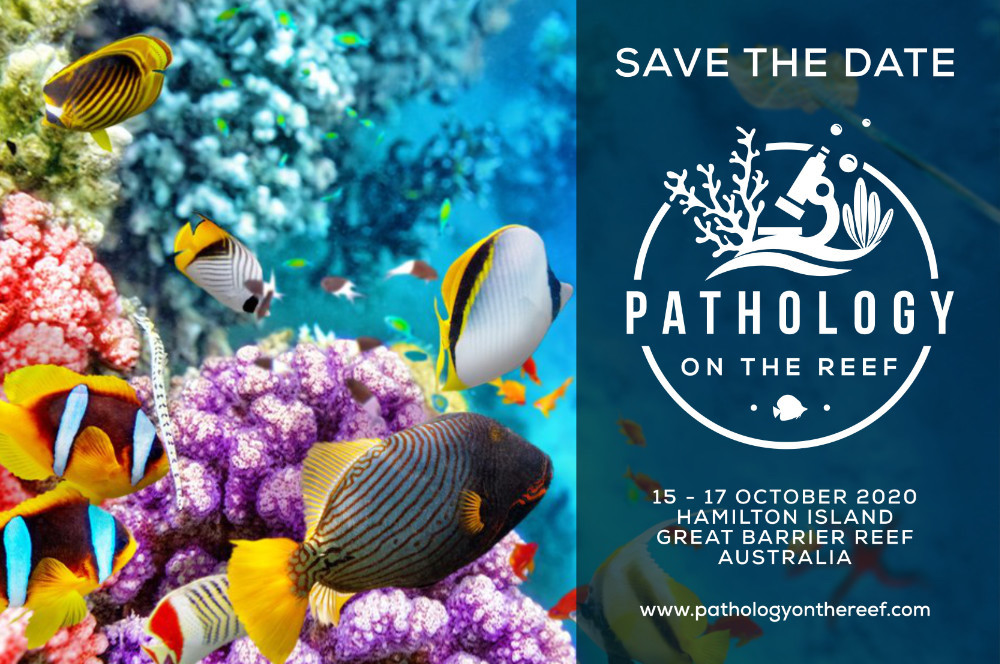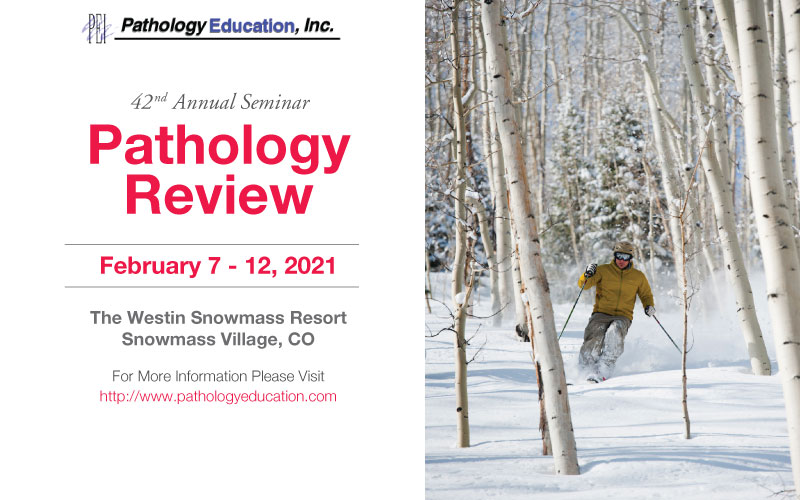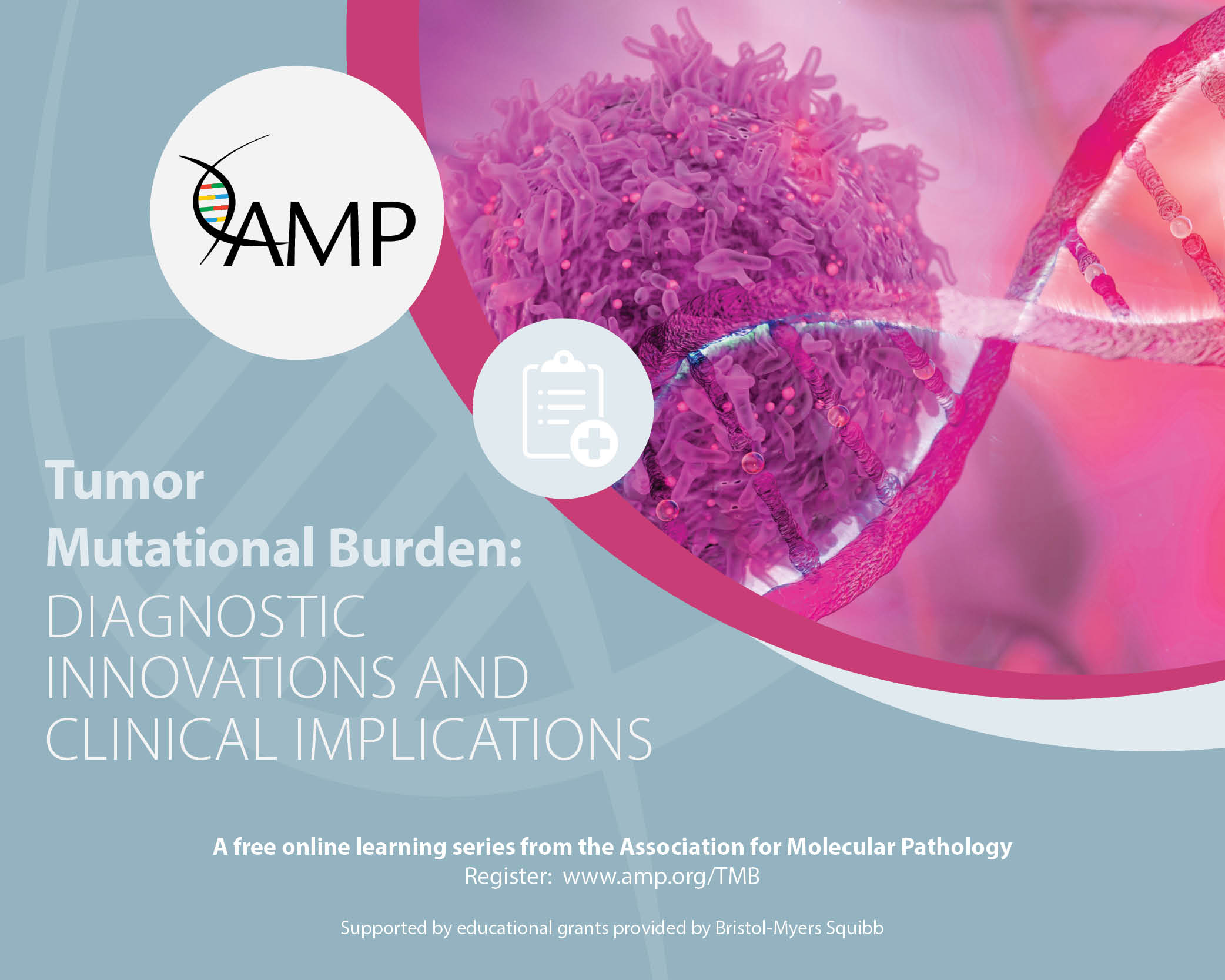Advertise your Pathology Conferences and Webinars with us!
To reach the 8,000 monthly visitors of this page, email your text, graphics and contact information to Ads@PathologyOutlines.com. If no response within 1 business day, please resend and CC Amanda@PathologyOutlines.com. Ads are posted until the conference / webinar date. Email us once you have the date and we will create a Save the Date ad to use until you get your official ad; there is no additional charge for changes. After posting, we will send you a confirmation email and invoice; please use the link at the bottom of the invoice to pay. Prepayment may be required.
We have these options for posting:
(a) $700 for a highlighted listing (most of the ads below are highlighted listings) with graphics, text and links
(b) $400 for a one line listing (date, location, title and link)
(c) $1,000 to add an E-blast (example) or social media posting
(d) $1,500 to add a premium E-blast (more visitors, different options for ad, contact us for details)
(e) $750 to add a banner for one month on the Conferences page (top: 728x90, side: 300x250)
(f) Package of 6 highlighted listings plus one E-blast or social media posting plus an Organization listing, contact us
(g) Contact us for additional promotional packages
Links to all recent posts are included in an E-blast sent biweekly to 6,215 subscribers for no additional charge. Frequently asked questions Testimonials
Map of US with regions
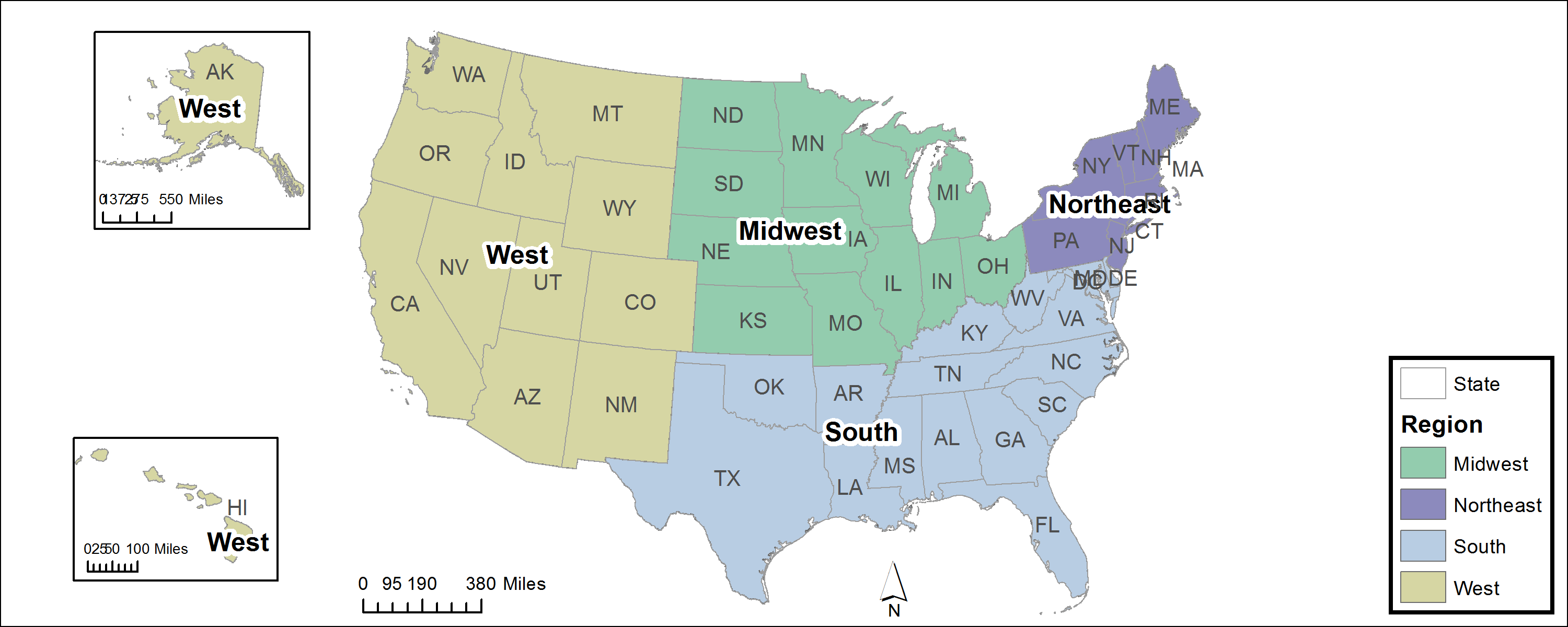
Start Date - 66 ads
USCAP Presents:
Patologia Interactiva: Actualización basada en caso
Como disciplina, la Patologia siempre esta en constante evolucion. Es necesario que el patologo se mantenga actualizado en los desarrollos de la practica importantes para el manejo de pacientes, desde cambios en guias de manejo hasta el surgimiento de nuevos criterios diagnosticos y herramientas ancilares. En este proceso de actualizacion, patologos practicando en paises de habla hispana requieren informacion en su idioma. Desafortunadamente, la mayoria de publicaciones, incluyendo recomendaciones escritas por organismos internacionales como la OMS, son escritas primariamente en ingles. Una educacion optima en patologia, que promueva una implementacion exitosa de los ultimos avances y recomendaciones, tiene que incorporar el idioma primario del practicante. Con esta importante premisa en mente, este curso organizado por USCAP busca ser una fuente de informacion de alta calidad y un formato practico e interactive completamente en Español.
The discipline of pathology is in constant evolution. The pathologist is required to stay current in practice developments that impact patient care, from changes in practice recommendations to emerging diagnostic criteria and ancillary techniques. Continuing medical education exists for this purpose. Pathologists practicing in Spanish-speaking countries, however, may find it challenging to stay updated. First, most of the peer-reviewed literature is in English. Second, most of the consensus and evidence-based recommendations by international organizations and professional societies (such as the World Health Organization and the International Collaboration on Cancer Reporting) are also primarily in English. Finally, the discovery and characterization of new diagnostic entities and ancillary tools, as well as the implementation of novel practices, often occurs first in English-speaking institutions. Optimal training and proficiency in pathology, as well as successful implementation of practice recommendations, need to diversify by incorporating the learner's primary language. With this in mind, USCAP’s intention with this course is to provide high-quality continuing medical education in Pathology completely in Spanish, in the context of an intimate mentoring environment that simulates residency training.
Course Location: Palm Springs, CA
Course Director: Carlos Parra-Herran, MD
USCAP Presents:
MODERN PATHOLOGY
This program is designed for academic, community and private practitioners who embrace practice updates to sustain competency, currency and relevance. It is organized at USCAP’s Interactive Learning Center in Palm Springs, California during “modernism week”, an event which attracts international interest in midcentury modern architecture and design.
The “play” on Modern Pathology, USCAP’s high-impact anatomic pathology journal, is timed to highlight transition in Editors-in-Chief with exposition of some highly-cited papers by selected authors whose presentations will be memorialized for exposure on USCAP and Springer Nature websites. The educational content varies from sessions on genomics, informatics and personalized medicine to interactive microscopy and “what’s hot in surgical pathology”. Registrants will have interactive experiences with stellar faculty from highly respected academic institutions, while being exposed to the art and architecture of the midcentury modernists.
Palm Springs is a world-class resort destination, available to registrants at high season, who may take advantage of a sunrise hike, yoga and spin classes or golf, tennis, and culinary options. USCAP is transforming not only how we learn but where we learn. This is an exceptional course with a panorama of new information.
Course Location: Palm Springs, CA
Course Directors: Laura W. Lamps, MD & David B. Kaminsky, MD, FIAC
March 19 - 22, 2020, Bushpath 2020 (Diagnostic Surgical Pathology Course), Kwa Maritane Lodge, Pilanesberg National Park, Northwest Province, South Africa [#8828]
USCAP
Presents:
Challenges in Hematology
Distinguishing between reactive and neoplastic proliferations in blood, bone marrow, lymph nodes, spleen and extra-nodal hematopoietic tissues, as well as accurately classifying neoplasms once they are identified, are essential for appropriate patient care. Pathologists struggle with differentiating reactive from neoplastic conditions in these organs, as well as in properly classifying hematopoietic neoplasms once they are diagnosed. This highly respected expert faculty will provide a unique mentoring experience in an intimate study environment at USCAP's Interactive Learning Center. They intend to cover diagnostic criteria for new entities in the 2016 WHO Classification of Hematopoietic and Lymphoid Neoplasms and provide useful morphologic clues and ancillary techniques to help you distinguish neoplastic and reactive conditions.
Course Location: Palm Springs, CA
Course Director: Daniel A. Arber, MD
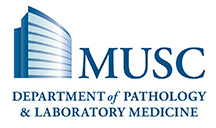
The Department of Pathology and Laboratory Medicine at the
Medical University of South Carolina
presents the
2020 Pathology Multi-Specialty Symposium
Kiawah Island Golf Resort
April 21st through April 24th, 2020

The Pathology Multi-Specialty Symposium is a 4-day post-graduate seminar annually presented by The Department of Pathology and Laboratory Medicine of the Medical University of South Carolina. The course provides the highest level of subspecialty instruction by a distinguished faculty drawn from the nation's leading experts.
The seminar includes one day of clinical pathology, two and one-half days of surgical pathology, and one day of cytopathology. The course offers an in-depth review of selected topics in surgical pathology and cytopathology.
This year's symposium will be held at the Kiawah Island West Beach Conference Center located on Kiawah Island from April 21st through April 24th, 2020.
© Department of Pathology and Laboratory Medicine, Medical University of South Carolina
[#8781]
USCAP
Presents:
OUT OF THE MOLD: The Emergence of Modern
Dermatopathology Imagined Through Maladies in Wax
USCAP is transforming not only how we learn, but where we learn. This course will be taught by a world class faculty in one of the most historically important settings in dermatopathology, La Musée des Moulages, the dermatology wax works museum of Hôpital Saint Louis. Dynamic lectures will provide panoramic insight into relevant aspects of dermatopathology including inflammatory dermatoses, melanocytic tumors, cutaneous lymphomas, soft tissue tumors and adnexal tumors. In addition to learning cutting-edge dermatopathology, you will immerse yourselves in the medical history of dermatology and dermatopathology in one of the most important archives of cutaneous diseases. The charm and glamour of Paris with its varied culinary, artistic and architectural allures will make your learning experience even more significant!
Course Director: Steven D. Billings, MD
Cytopathology as a discipline has been re-imagined by the convergence of minimally invasive diagnostic and therapeutic techniques, refinements in imaging and guided biopsies, molecular testing and whole genome sequencing, the emergence of targeted therapies, and the awakening of pathologists to their critical role in patient care, safety and outcomes. A new force in medicine is emerging: pathologists are critical members of the health care team and patients are at the center of their concerns and efforts.
Immersive Cytopathology Experience (ICE) has been redesigned for presentation at a fabulous venue in San Sebastian, Spain, with change in emphasis to interventional diagnostics. There is monumental value in the intersection of case-based learning, multidisciplinary collaborative interaction of care teams, clinical correlations, the partnership with advanced imaging, and awareness of communications, empathy and patient safety.
The schedule accommodates time for you to experience San Sebastian, and nearby Bilbao to visit the Guggenheim Museum designed by Frank Gehry. The culinary scene is unparalleled, and the geography is magnificent.
USCAP is transforming not only how we learn but where we learn. Pathologists can benefit from superb teaching with invaluable exposure to cross-cultural experiences.
Classification schemes, the molecular and genetic basis of head and neck disease, procedural approaches to specimen acquisition and processing, empathetic communication, quality and patient safety, and measuring the non-clinical performance of the academic pathologist contribute texture and depth to this learning experience. The schedule accommodates time for you to experience ICELAND, from The Blue Lagoon to the Northern Lights and locations where Game of Thrones is filmed.
USCAP is transforming how we learn and where we learn. From a 15th century convent in Florence to the Harpa Concert Hall and Conference Centre in Iceland, learners 'come from away' for their unique and enduring experience.
USCAP Presents:
Dermatopathology in the Desert: Dodging Bullets in the Dermatopathology Wilderness
Differentiating neoplastic from non-neoplastic disorders is one of the most difficult diagnostic challenges in pathology. Accurate diagnosis is paramount to initiate the appropriate treatment. It requires specific skills which often include at least some degree of clinical knowledge, awareness of the broad morphologic range and familiarity with ancillary tests. Errors in the interpretation of skin biopsies, especially in relation to melanocytic tumours, are among the most frequent causes for litigation in surgical biopsy and can lead to unfavorable patient outcomes. There are numerous pitfalls that diagnostic pathologists need to be aware of, including lack of relevant clinical information, sampling error and the wide morphologic spectrum of both inflammatory and neoplastic disorders, often showing overlapping findings and only subtle differentiating features. This special course will elevate your knowledge and polish your diagnostic skills as you interact with experts in a uniquely intimate mentoring environment.
Course Location: Palm Springs, CA
Course Director: Thomas Brenn, MD, PhD, FRCPath
USCAP Presents:
Head and Neck Pathology: Top to Bottom Training to Avoid the Ups and Downs
Head and neck pathology represents a significant portion of surgical pathology practice. Studies have shown this area to be particularly treacherous to community pathologists with up to 53% of diagnoses changed (including 7% with major changes) upon second review at tertiary care hospitals (Kronz and Westra, Curr Opin Otolaryngol Head Neck Surgery 2005; 13:81-4).
In recent years there have been numerous developments in head and neck pathology, further complicating this inherent difficulty. Novel entities have been described, pathognomonic molecular alterations have been uncovered, and major shifts in diagnostic classification schemes have been proposed. Many of these concepts were incorporated into the newest editions of the WHO Classifications for Head and Neck and Endocrine Tumors, both of which were published recently.
Taken together, it is difficult for pathologists to stay current and maintain proficiency in head and neck pathology without supplemental training and education. This course is a terrific opportunity to refine your diagnostic skills in a uniquely personal mentoring environment with energetic pathologists whose keen eyes, diagnostic acumen, and a modern approach will create an indelible impression.
This course is designed for general pathologists, practicing surgical pathologists, senior residents and pathologists with special interest in head and neck pathology.
Course Location: Palm Springs, CA
Course Director:
Justin Bishop, MD
DIAGNOSTIC PATHOLOGY UPDATE 2020
USCAP is a transformative leader in pathology education, creating better
pathologists with updates in relevant information requisite for their
performance and professional growth. The Academy is sensitive to the
personal and cultural needs of practicing pathologists by providing
conferences that welcome them with their families to exotic destination
venues at which they are enriched with new knowledge and unusual
experiences. The 2020 Diagnostic Pathology Update course combines expert
subspecialized, academic faculty with exposure to ocean and rain forests
symbolic of the dichotomy that is Costa Rica. From zip-lining to
surfing, this tropical paradise brings pathologists into contact with
the cuisine, agriculture, art and geography of a unique country that
values education as its primary core value. Costa Rica has eliminated
its standing army to use the savings from defense to improve education,
health care and a durable social safety net.
USCAP is changing not only how we learn, but where we learn by
re-imagining the learning environment and continuously elevating the
quality of content. Experience top educators. Refine cognitive skills.
Hold coffee beans in your hand. Inhale vapor from raging waterfalls.
Witness rainbows in the evanescent colors of iguana skins. Feel sunsets
scalding your memory.
Course Director: Rhonda K. Yantiss, MD & Jason L. Hornick, MD, PhD
USCAP Presents:
Practical Issues in Urologic Pathology - 40 New Cases!
Specimens represented by prostate needle core biopsies, transurethral resection of prostate (TURP), radical prostatectomy, kidney biopsies, nephrectomy (radical or partial), bladder biopsies, cystectomy (radical or partial), cystoprostatectomy, testicular biopsies or orchiectomy are frequently handled by pathology residents/fellows, general surgical pathologists and/or urologic pathologists in academic institutions and private practices. These specimens are associated with potential diagnostic challenges and risks in day-to-day practice. This experienced faculty has selected exemplary cases from their expert consultation files (and routine in-house cases) that illustrate recurrent professional practice gaps in urologic pathology. Through intimate mentoring, you will learn how to approach them, make accurate diagnoses, and avoid traps and pitfalls that could cause diagnostic error. The course is pragmatic, clinically-oriented and stimulating. It will focus on these issues:
• Benign tumor-like lesions of the prostate are often over-diagnosed as prostate cancer or atypical small acinar proliferations
• Secondary tumors involving the prostate are frequently misdiagnosed as prostate cancer
• Histological variants of prostate cancer with important clinical significance are under-recognized
• Therapy-related changes in benign glands and prostate cancer are frequently missed
• Extra-prostatic extension in prostate needle core biopsies is frequently missed
• Recently described renal carcinomas are not well-appreciated
• Secondary tumors involving the kidney are occasionally misinterpreted as primary tumors
• Some variants of urothelial carcinoma are under-recognized
• Benign entities that mimic urothelial carcinoma are frequently misdiagnosed
• Testicular tumors still continue to pose diagnostic challenges
Course Location: Palm Springs, CA
Course Director:
Adeboye O. Osunkoya
USCAP Presents:
Hematopathology Tasting Menu: A Sampling of Delightful Diagnostic Challenges
The most recent (2016) WHO classification of hematologic neoplasms delineates specific diagnostic criteria for well-defined neoplastic entities. However, pathologists who diagnose bone marrow biopsies and lymphoid proliferations often face challenges that are not directly addressed by the WHO system or represent reactive conditions that may mimic hematologic malignancies. These include atypical morphologic features, unexpected immunostaining patterns, and discordant genetic features in neoplastic entities. Pathologists often have difficulties applying the WHO criteria if they are not fully concordant with the expected patterns and/or if they are relatively new entities with which pathologists may be unfamiliar. Moreover, there is inherent subjectivity in interpreting morphologic findings and even the results of ancillary testing. The literature contains reports about the intrinsic interobserver variability in making hematopathology diagnoses and pitfalls when applying established criteria. This course aims to bridge the practice gaps between the 'ideal world' WHO classification system and the 'real world' of hematopathology diagnosis by presenting challenging case examples.
These cases will illustrate how to interpret correctly and apply morphologic criteria in diagnosing hematologic neoplasms (including newer entities), how to avoid diagnosing malignancy in benign mimics, and how appropriately to integrate the results of ancillary testing with the morphology, particularly when there are discordant or unexpected results. We will provide participants with guidelines on how practically to approach such cases and avoid misdiagnosis, thereby improving their performance in daily practice. The target audience is general pathologists who diagnose bone marrow and lymphoid lesions, practicing hematopathologists and hematopathology fellows.
Course Location: Palm Springs, CA
Course Director: Robert P. Hasserjian, MD









